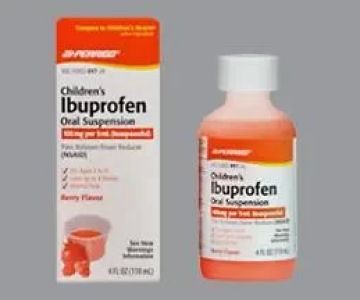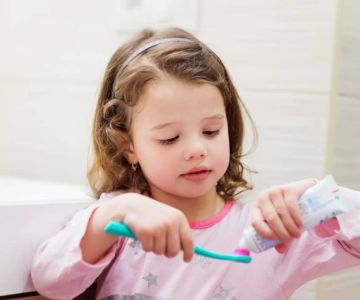Who Needs Oral Health Assessment for Children?
Oral health assessments for children play a vital role in ensuring the foundation for a lifetime of healthy smiles. Parents in the United States often ask, “Who needs oral health assessments for children?” The answer is that every child benefits from regular dental evaluations, starting as early as their first tooth eruption or by their first birthday. These assessments are not only crucial for identifying potential issues early but also for educating families on proper dental care routines tailored for children’s unique needs.
Why Oral Health Assessment is Essential for Children
Children’s mouths are constantly changing as baby teeth erupt, fall out, and are replaced by permanent teeth. Oral health assessments provide an opportunity to monitor this development, identify early signs of cavities, gum disease, or misalignment, and take preventative steps. Pediatric dentists are trained to spot issues that parents may not recognize and to deliver treatments and guidance in a child-friendly manner.
Regular assessments also help instill good oral hygiene habits from a young age, reducing the risk of costly or painful treatments later on. Oral health is linked to overall health, affecting nutrition, speech development, and self-esteem, making early dental care a priority.
1. Recommended Timing for Oral Health Assessments
The American Academy of Pediatric Dentistry recommends a child’s first dental visit within six months after the first tooth appears or by the age of one. After this initial assessment, regular checkups every six months are generally advised, although frequency can vary based on the child’s risk factors and dental health.
Some children may require more frequent visits if they have a higher risk of cavities, dental trauma, or special healthcare needs. A personalized care plan is usually developed during the first visit to outline the best schedule for ongoing oral health assessments.
2. What Happens During a Child’s Oral Health Assessment?
During an oral health assessment for children, the dentist or dental hygienist performs several key evaluations:
- Examination of Teeth and Gums: Checking for cavities, plaque, tartar buildup, gum inflammation, or abnormalities in tooth development.
- Assessment of Jaw and Bite: Evaluating how teeth align and whether the jaw is developing properly.
- Risk Evaluation: Discussing dietary habits, oral hygiene practices, fluoride exposure, and potential risk factors for dental disease.
- Preventative Care: Cleaning, fluoride treatments, and sometimes dental sealants to protect vulnerable teeth.
- Education for Parents and Children: Guidance on brushing techniques, flossing, nutrition, and injury prevention.
3. Common Dental Issues Identified During Childhood Assessments
Oral health assessments frequently detect issues such as:
- Early Childhood Cavities: Also known as baby bottle tooth decay, caused by frequent exposure to sugary liquids.
- Gum Disease: Although rare in very young children, poor oral hygiene can lead to gingivitis.
- Malocclusion: Misaligned teeth or bite problems that may require orthodontic attention.
- Developmental Anomalies: Such as delayed tooth eruption or enamel defects.
- Dental Injuries: Trauma from falls or accidents common in active children.
4. Real-World Story: How Early Assessments Prevented Serious Issues
Take the story of Emma, a 4-year-old girl from Texas, whose parents followed dental recommendations for early oral health assessments. During a routine checkup, her dentist spotted small white spots indicating early decay. Thanks to timely intervention with fluoride treatments and improved home care, Emma avoided painful cavities and more invasive procedures. This case highlights how early detection through assessments can save children discomfort and families money.
5. How Parents Can Support Oral Health Between Assessments
Parents play a critical role in maintaining their children’s oral health. Between professional assessments, parents should:
- Brush children’s teeth twice daily with age-appropriate fluoride toothpaste.
- Help children floss as soon as two teeth touch.
- Limit sugary snacks and drinks to prevent decay.
- Encourage drinking water, especially fluoridated water.
- Protect children’s teeth during sports with mouthguards.
- Schedule and keep regular dental appointments as advised.
6. Finding the Right Pediatric Dental Care
Choosing a dental professional who specializes in pediatric care can make all the difference. Pediatric dentists understand children’s dental development and how to create a welcoming environment to reduce fear and anxiety. Look for dentists who offer child-friendly offices, positive reinforcement techniques, and comprehensive oral health assessments tailored to kids.
For trusted pediatric dental care recommendations and oral health services, parents can visit Dentistry Toothtruth, where expert advice and local provider listings help families make informed decisions.
Invest in Your Child’s Future with Regular Oral Health Assessments
Oral health assessments for children are an indispensable part of safeguarding their smile and overall health. By ensuring timely dental visits, parents provide children with the best opportunity to grow strong, healthy teeth and develop lifelong habits. Each assessment builds on the last, creating a path toward confident oral health and well-being.






 North Shore Smiles Pediatric Dentistry5.0 (52 review)
North Shore Smiles Pediatric Dentistry5.0 (52 review) Kwong Orthodontics4.0 (10 review)
Kwong Orthodontics4.0 (10 review) SouthWest Dental Center4.0 (7 review)
SouthWest Dental Center4.0 (7 review) Sunbrite Dental4.0 (1409 review)
Sunbrite Dental4.0 (1409 review) East Valley Dental Care4.0 (618 review)
East Valley Dental Care4.0 (618 review) Jonesboro Pediatric Dental Group4.0 (77 review)
Jonesboro Pediatric Dental Group4.0 (77 review) The Importance of Oral Health Education During Pregnancy for a Healthy Pregnancy
The Importance of Oral Health Education During Pregnancy for a Healthy Pregnancy Best Tips for Brushing Your Teeth Properly for Healthy Gums: Essential Techniques for Oral Health
Best Tips for Brushing Your Teeth Properly for Healthy Gums: Essential Techniques for Oral Health Why Skipping Dental Checkups Can Lead to Bigger Oral Health Problems
Why Skipping Dental Checkups Can Lead to Bigger Oral Health Problems Advantages of Porcelain Dental Restorations
Advantages of Porcelain Dental Restorations How Can Diabetes Cause Tooth and Gum Problems? Preventing and Managing Oral Health Issues
How Can Diabetes Cause Tooth and Gum Problems? Preventing and Managing Oral Health Issues Healthy Habits for Promoting Good Oral Health and Hygiene: Tips for a Healthy Smile
Healthy Habits for Promoting Good Oral Health and Hygiene: Tips for a Healthy Smile